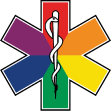The National Ambulance LGBT Network was established in 2015 and, in the first three years, has made a big impact on the culture of ambulance services across the United Kingdom and even beyond. Today you will see many ambulance staff wearing the rainbow star of life badge indicating they are a safe person for their patients and colleagues.
-
2023
Our biggest conference so far took place at Manchester Metropolitan University on 15 and 16 June. Over 200 ambulance staff from across the United Kingdom attended.

-
2022
Post-pandemic, we relaunched as the National Ambulance LGBT+ Network at an event in Sheffield. We introduced a smart new identity incorporating elements of the Progress Flag.
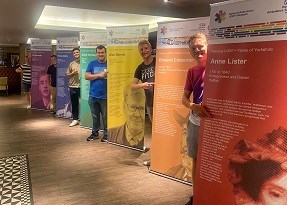
-
2020
To coincide with our fifth birthday we launched two new professional development resources aimed at improving staff confidence and helping to provide a better experience to patients. The two resources are linked to trans people and people living with HIV.
-
2019
Our Recipe for Wellbeing book is launched at our fourth conference in Birmingham.
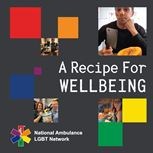
-
2019
The largest rainbow star of life so far produced appears on a vintage ambulance at York Pride
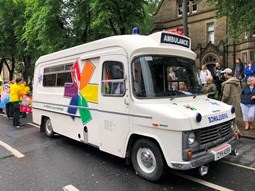
-
2018
Two new resources, supporting ambulance staff when working with trans patients and another promoting good mental health, are launched at the third National Ambulance LGBT Network conference in Manchester in August.
-
2018
National Ambulance LGBT Network website launched in January
-
2016
First National Ambulance LGBT Network conference held in Brighton
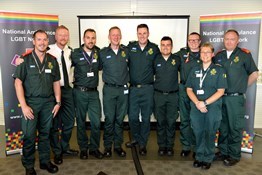
-
2015
National Ambulance LGBT Network established
-
2014
First same sex couple marriages took place in the summer
-
2004
Civil partnerships introduced for same sex couples, offering the same legal rights
-
2003
Made illegal to discriminate in the workforce on the grounds of sexual orientation
-
2000
Government lift the ban of gay people in the armed forces
-
1990
Lesbian and Gay Police Association established
-
1972
First Pride March in London
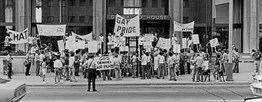
-
1967
The Sexual Offences Act was changed to decriminalisation consenting acts between two men over the age of 21. It took ten years to get this change invoked by Parliament
